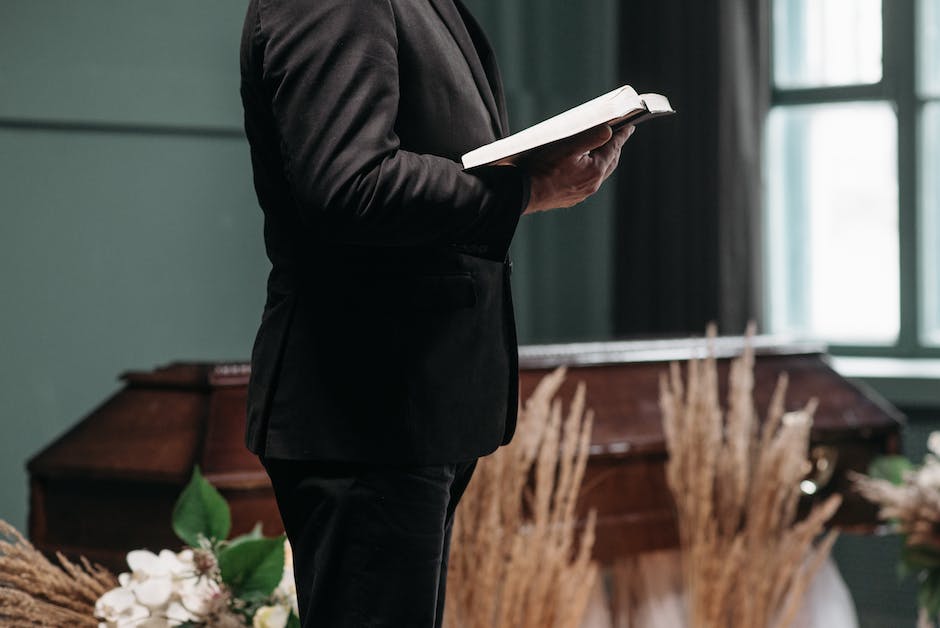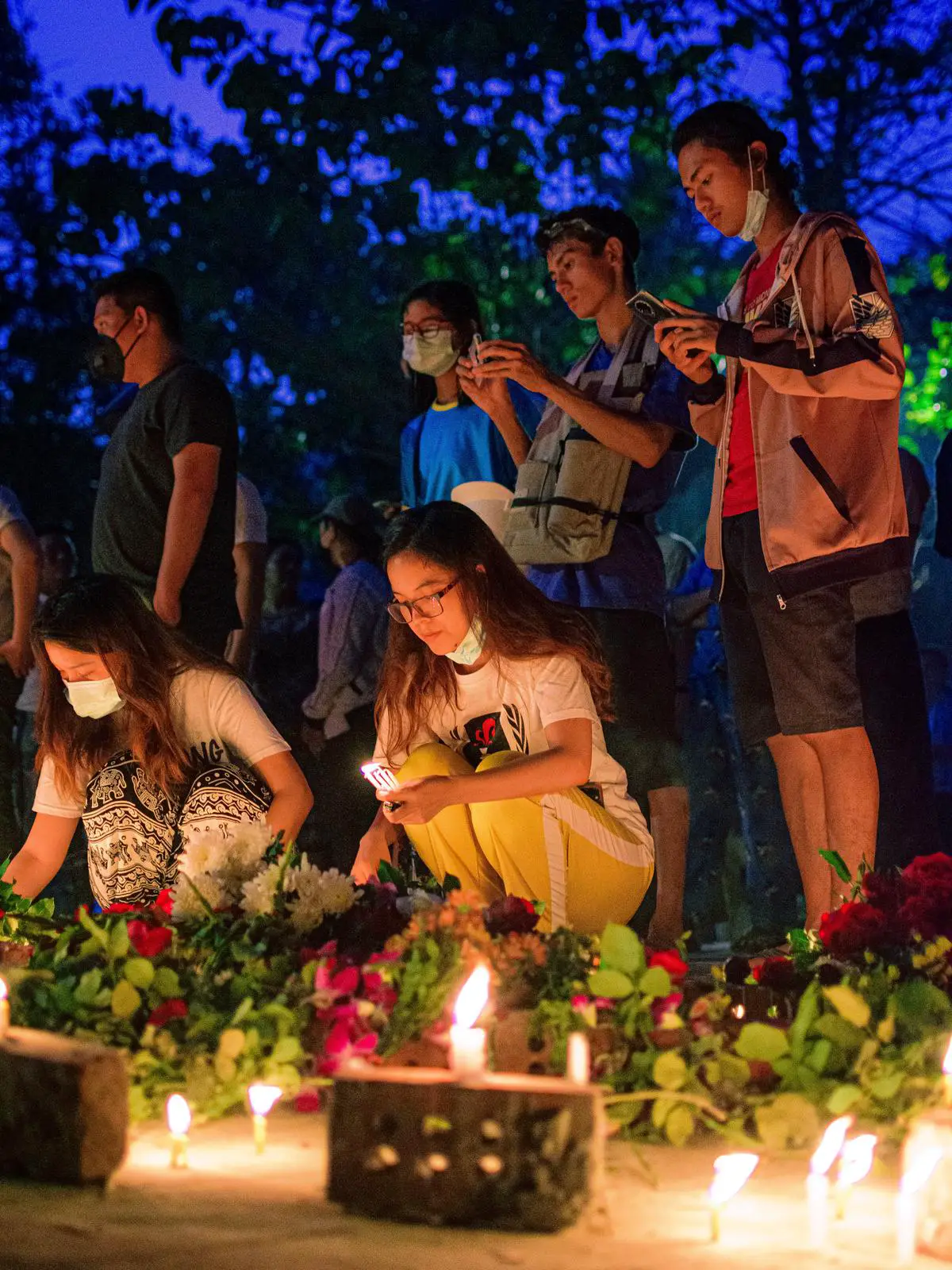Life is unpredictable, and sometimes situations arise that prevent us from attending important events, such as funerals. Whether it’s a personal reason, work commitment, health issue, or any other viable factor, it can be a delicate matter. When we find ourselves in such a predicament, many questions come to mind – How do we offer a reasonable excuse? Will it be taken badly? Can our absence be seen as disrespectful? This discourse aims to provide informative insights on understanding the various reasons that prevent attendance, evaluating generally acceptable circumstances, exploring the respectful communication of absence, and dealing with the potential emotional aftermath.
Understanding the need for funeral excuses
Understanding Funeral Excuses: Why They’re Necessary
Funerals and mourning rituals are cultural practices that provide comfort and closure for those who have lost a loved one. However, not everyone can attend these ceremonies for a variety of reasons, creating the need for funeral excuses. This discussion uncovers the common social, personal, or work-related factors preventing individuals from attending funerals.
Emotional Burdens
Grieving is an individual process. Many people find consolation by collectively mourning in a funeral service, surrounded by those experiencing similar emotions. However, for others, the raw and public display of grief may feel overwhelming. Attending a funeral can surface emotional burdens, causing intense distress and anxiety, and disrupt the natural coping process of some individuals.
Prior Commitments
Prior commitments, such as a significant business meeting, an important school examination, or a previously planned vacation, can make it difficult to attend a funeral. Given the spontaneous nature of death, it’s often challenging to adjust schedules, especially when commitments involve third parties or have far-reaching implications.
Financial Strain
Attending a funeral often comes with hidden costs. Beyond the potential loss of wages for taking leave from work, individuals might have to cater to travel expenses, accommodation, or appropriate attire for the service. Not everyone can afford the unexpected financial burden that attending a funeral may bring, creating the necessity for funeral excuses.
Health Conditions
Physical health or medical conditions, such as illness or mobility challenges, can serve as a significant hindrance to attend funerals. In the wake of COVID-19, many have refrained from attending large gatherings to curb the spread of the virus or protect their own health, especially individuals with underlying conditions or seniors.
Geographic Distance
In our modern, globally connected world, families and friends are often scattered across diverse geographic locations. Attending a funeral can require interstate or international travel, which may be impossible on short notice due to costs, travel restrictions, or time-consuming journeys.
When a loved one passes, it’s traditionally expected for friends and family to attend the funeral. However, it’s crucial to note that several legitimate circumstances might prevent one from attending. Although funerals are a renowned way of paying respects, it’s essential to understand there are other means of expressing condolences, extending sympathy, and supporting grieving friends and family, even if you can’t be physically present.

Evaluating acceptable Funeral Excuses
Exploring Acceptable Reasons for Funeral Absences
Funerals serve as significant events which provide closure and an opportunity to pay final respects to those we’ve lost. Despite this, not everyone can attend due to numerous valid reasons. Society accepts some of these reasons, while others may be viewed as insensitive or disrespectful. This discussion will delve into commonly accepted reasons or justifiable excuses for missing a funeral service.
Commonly Accepted Reasons for Missing Funerals
Typically, reasons for missing a funeral may include illness, personal emergencies, and distance.
Illness or medical conditions are among the most common and readily accepted excuses for not attending a funeral. If you’re unwell, particularly with a contagious disease, it’s better for you to stay home. It’s about your health as well as that of other attendees.
Emergencies can strike at any time. Personal emergencies, such as a sudden illness in the family or an urgent work matter, are among reasons widely accepted for missing a funeral.
Distance is another common excuse. If the deceased lived far away, it might be difficult and sometimes impossible to attend due to the cost of travel, time restraints, or logistical difficulties.
Variations in Acceptable Excuses Based on Cultural Variations
Cultural factors significantly influence what is generally regarded as acceptable excuses. For example, in some cultures, the immediate family of the deceased is obligated to be present during a funeral, as absence could be interpreted as a sign of disrespect.
However, in other cultures, it is accepted that those far away may not be able to attend the ceremony due to the reasons mentioned above. In such cultures, missing a funeral due to a valid reason does not equate to disrespect or a lack of sympathy.
How Excuses Vary Based on Relationship with Deceased
Your relationship with the deceased can also affect what is considered an acceptable excuse. Close family members are generally expected to make every effort to be present, given the significance they hold in the mourning process.
On the other hand, more distant relatives, colleagues, acquaintances, and friends might find their absence accepted and understood given they might not have as close a bond to the deceased, and can show their respects in many other ways.
The Importance of Respect When Communicating Funeral Absences
Absence from a funeral can sometimes be unavoidable due to factors such as personal illness, emergency situations, or geographical constraints. However, there can be instances when certain excuses could come across as dismissive or insensitive if not handled properly- like missing the proceedings due to a minor commitment or simply out of apathy. Such behavior can come across as offensive to the bereaved, exacerbating their grief.
To maintain respect, it’s pivotal to competently and timely communicate your reason for non-attendance. By doing this, you reassure the mourners of your reverence for the deceased and the surviving ones, mitigating any chances of unintentional offense.
In summary, the suitability of an excuse for missing a funeral can differ based largely on cultural expectations and one’s relationship with the departed. Hence, clear and thoughtful communication is essential to prevent misunderstandings, while also offering your sympathies, regardless of your physical presence.

Communicating your Absence Respectfully
The Significance of Respectful Communication When Absent from Funerals
It is utmost necessary to articulate your absence from a funeral in a respectful and effective way. Individuals coping with a loss can be particularly vulnerable, and their reception to reactions and conduct of others could be heightened during this grim period. By showing empathy and understanding while conveying your reasons for non-attendance, you can not only maintain your relationships, but also offer some solace to those grieving.
Choosing the Correct Medium for Communication
The method of communication you choose can greatly influence how your message is received. Depending on your relationship with the bereaved and the means of communication you believe they would be most comfortable with, you could either call, send an email, write a letter, or send a sympathy card. For close relationships, a phone call might be more appropriate while an email or a letter could be fitting for professional connections or distant relationships.
Selecting Appropriate Wording
The words you choose should be respectful, sincere, and careful. An appropriate way to phrase your inability to attend could be, “I am deeply sorry to hear about your loss, and regret that I am unable to attend the funeral due to [reason].”
Avoid providing excessive details about your reason for not attending unless you are explicitly asked. Remember the focus should be on the bereaved and their loss, not the specifics of your circumstances.
Choosing the Right Time to Communicate
Timing plays a critical role in conveying such messages. Once you are certain of your inability to attend, it’s better to convey the same without unduly delay. Delaying this communication might appear as though the matter is of low priority to you.
To ensure that your message does not get lost in the chaos of funeral arrangements, make sure to reach the bereaved via a direct medium, preferably through a personal conversation, if possible. This can be done in-person, video call, or phone call, as most appropriate and comfortable for you both.
Expressing Condolences
Even if you’re unable to attend the funeral, it’s essential to express your condolences to the bereaved.
In expressing your sympathy, focus on the deceased’s life and achievements, reminiscing shared memories if possible as well as the qualities that made this person special to you. Keep the message personal and genuine; however, avoid clichéd phrases that may come across as dismissive or trivialize grief.
For instance, you could say, “I was so saddened to hear of [deceased’s name] passing. They were such a warm, welcoming person and I always admired their strength and resilience. Please know I’m with you in spirit and if there’s anything else I can do to provide support during this tough time, do let me know.”
Relaying your inability to attend a funeral in a thoughtful and respectful manner can offer a sense of understanding and consolation to those in grief.

Dealing with the Aftermath
Comprehending the Emotional Impact of Missing Funerals
Funerals often present a solemn environment where individuals pay their final respects to someone they’ve lost. The reactions from family and friends may differ when someone is unable to attend. Some may empathize, particularly if the reason behind the absence is compelling and valid. However, others may interpret the person’s absence as a lack of respect or care for the departed and their survivors. Emotions are often heightened during such a strenuous period, and it’s thus crucial to handle these circumstances with delicacy and empathy.
Managing Negative Reactions
Negative reactions to funeral excuses may include feelings of anger, frustration, disappointment, or betrayal. If confronted head-on, it’s essential to be honest about your reasons for not attending. Avoid justifying or making excuses, which can seem defensive and insincere. Instead, acknowledge their feelings, apologize for any unintended upset caused, and share your genuine feelings about the deceased to reassure them of your love and respect. It’s also beneficial to offer support in other ways such as by sending flowers, a condolence card, or even offering to help in post-funeral arrangements.
Navigating Emotional Implications
Not attending a funeral can stir a wide range of emotions, not just from the family and friends of the deceased, but also within yourself. You might feel guilt, sorrow, or regret, especially if the deceased was someone close to you. These feelings are valid and acknowledging them is the first step towards healing. Opening up to a trusted friend or a professional counselor about these emotions can provide helpful insights and supportive reassurances.
Maintaining Relationships Amid Absence from the Funeral
Relationships can be strained when you cannot attend a funeral. Close relatives or friends of the deceased may perceive your absence as a neglect of your relationship with them or the deceased. Communicating your reasons for absence honestly and respectfully can go a long way in mending any misunderstandings.
During this time, it’s crucial to provide emotional support and maintain open lines of communication. Check up on them regularly and let them know that you’re available to listen to their sentiments and to provide comfort and reassurance.
In the absence of attending the funeral, there are other ways to pay respects and show care. Some people choose to make a donation to a cause the deceased loved, others light a candle in their memory, or schedule a time to visit the burial site at a later date.
Conclusion
Not being able to attend a funeral can be emotionally challenging for both you and the deceased’s family. However, with proper communication, understanding, and genuine expressions of sympathy, relationships can be maintained and any negative reactions can be managed successfully. It’s crucial to remember that everyone grieves differently, and above all personal health reasons or other extraordinary circumstances always stand justified when it comes to being present at a funeral.

Photo by zinkohein on Unsplash
Last but not least, it’s essential to note that while we may never control how others perceive our absence at a funeral, we can manage how we convey our reasons and handle any aftermath. Keep in mind, the essence remains to convey respect to the deceased and their family by expressing sincere condolences, regardless of attendance. This discussion has sought to provide guidance through such delicate situations, keeping sensitivity, empathy, and respect at its heart. It’s hoped that this will aid in handling such circumstances with grace and understanding, ensuring that relationships remain intact and the deceased are accorded the respect they deserve.

Recent Comments